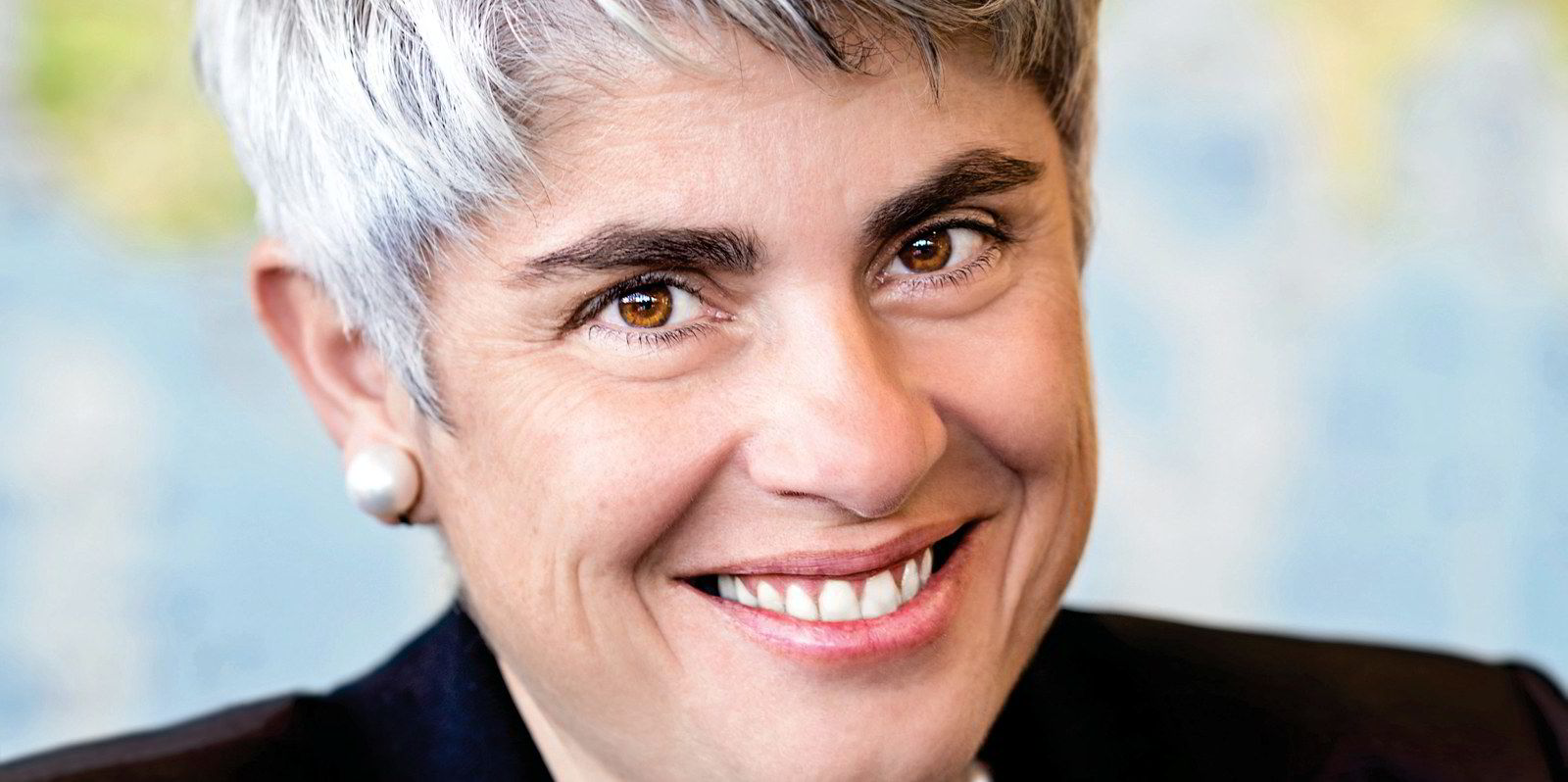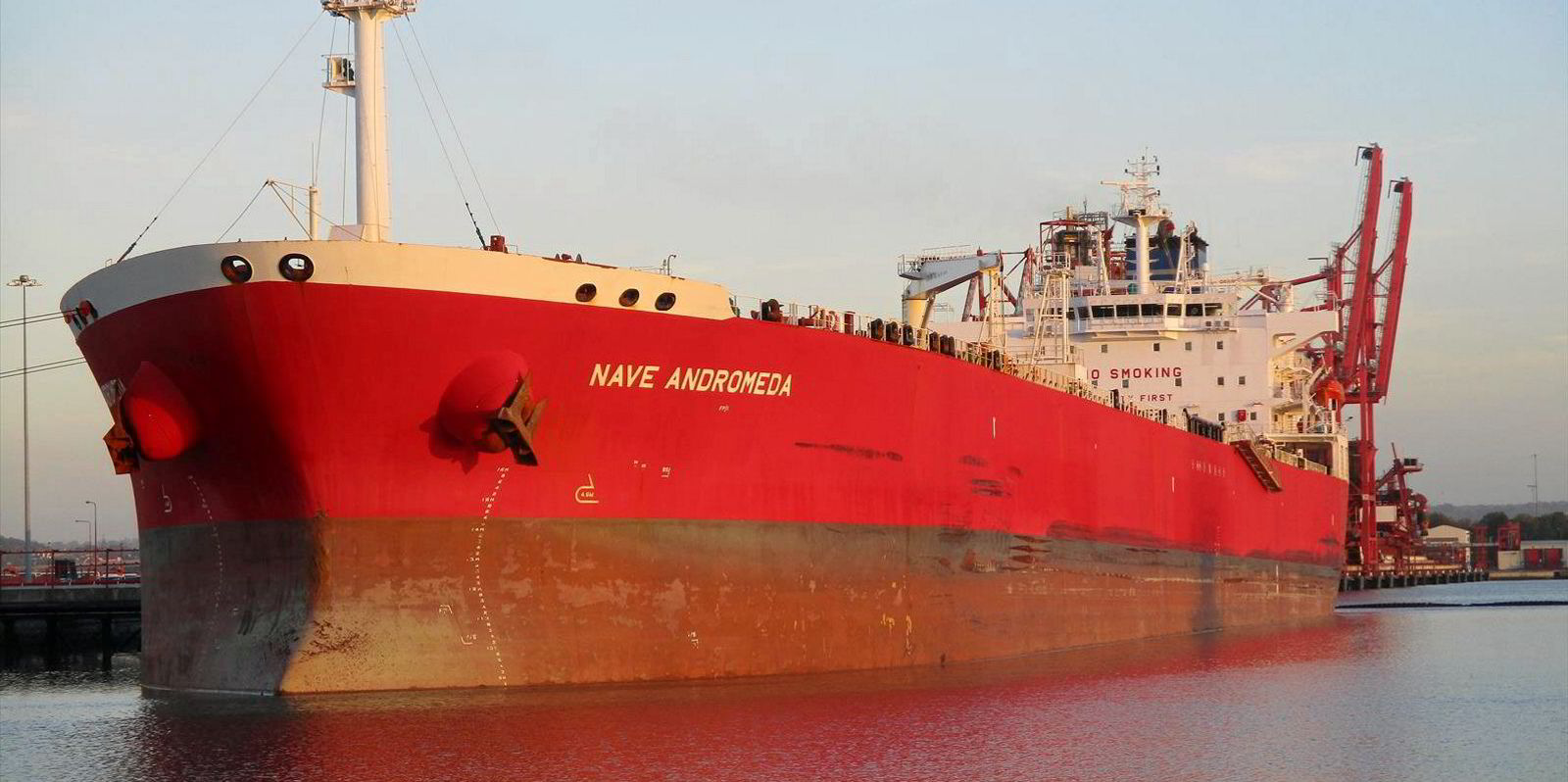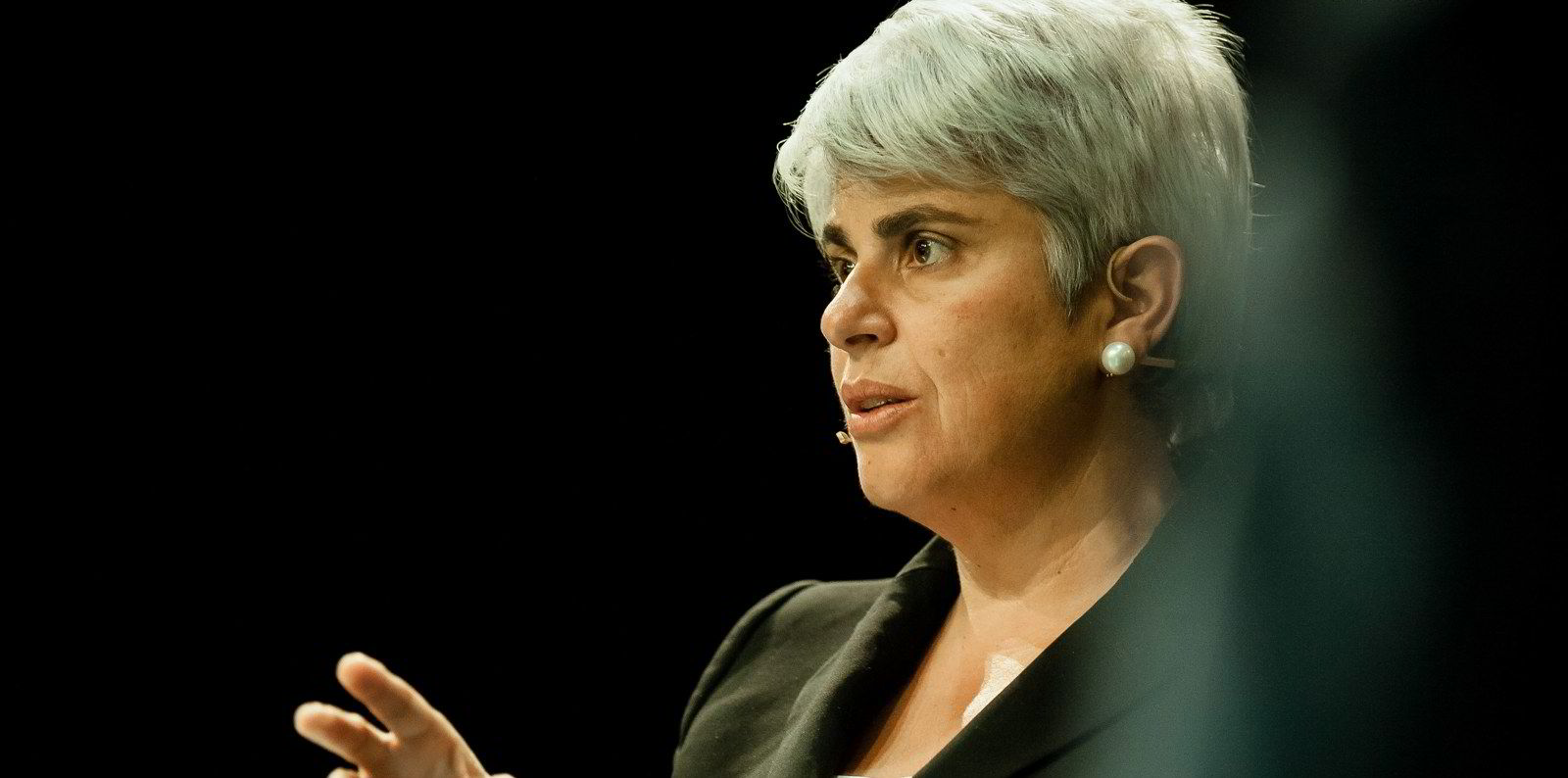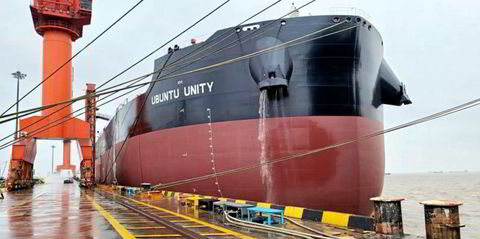Navios Maritime Partners' acquisition of sister company Navios Maritime Containers is getting high praise from a prominent shipping analyst.
The New York-listed bulker owner on Monday said it plans to buy the sister boxship owner by exchanging one Navios Partners share for roughly every three Navios Containers units.
The acquisition price per share for Nasdaq-listed Navios Containers comes at a 6% premium to its $4.12 closing price on 31 December and at a 168% premium to its 120-day volume-weighted average price on that date.
Shares of Navios Partners, which trade under the ticker symbol NMM, gained $0.01 to reach $10.85 mid-afternoon on Tuesday.
Navios Containers' stock, which can also be found as NMCI, improved $0.07 to $4.11.
"It's a very attractive acquisition for NMM," Jefferies analyst Randy Giveans told TradeWinds.
Soaring boxships
"The containership market is just soaring, so you're getting more exposure to a very strong containership market with rates raising dramatically."
The Freightos Boxship Index has risen 46% since 30 November to 3,627 points on Tuesday, according to the Baltic Exchange.
The merger will also create a Navios company with larger market capitalisation, trading liquidity and cash flows, Giveans said.
"For all those reasons, it'd be beneficial to NMM," he said.
Navios Partners, which operates 55 bulkers and owns 10 boxships, said it carried out this deal to simplify capital and corporate structures and save on public company costs.
"It's certainly a special situation in that NMM already owns 35% of NMCI," he said.
Navios Partners and Navios Containers are sister entities to three other companies under Navios Maritime Holdings: Navios Tanker Management, product tanker and VLCC owner Navios Maritime Acquisition, and product tanker and barge owner Navios South American Logistics.
Giveans said the Angeliki Frangou-led Navios Holdings may further consolidate its subsidiaries for simplicity's sake, but this latest move already forms three main Navios concerns.
"They could certainly do others, but now they have a tanker company, a dry bulk entity and a mostly containership entity now," he said.







